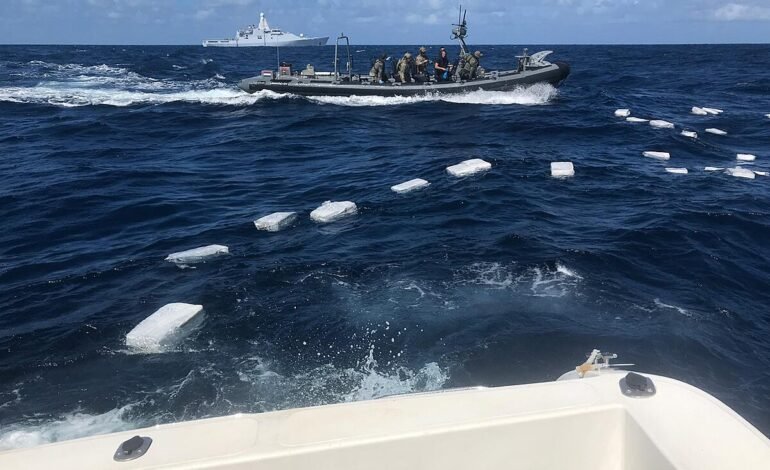Defensie, CC0, via Wikimedia Commons
In a major diplomatic coup, President Donald Trump announced that his administration will impose "significant tariffs" on Colombian exports and cut off economic aid to Colombia, accusing President Gustavo Petro of being an "illegal drug kingpin" and allowing Colombia to operate as a "cocaine production machine."
Trump stated that "today, these payments or subsidies will cease to be made to Colombia" and that Washington will no longer tolerate what he called "killing fields" linked to drug trafficking in Colombian territory. He also accused Petro of having "a new mouth for America" and of failing to effectively combat drug trafficking despite US support for Colombia.
In parallel with the statements, the Pentagon announced a military strike in the Caribbean against a vessel allegedly linked to the Colombian insurgent group the National Liberation Army (ELN), intensifying the controversy. Washington claimed to have destroyed a "narco-terrorist" vessel.
Colombia's reaction and Petro's response
The Colombian government responded firmly: the Foreign Ministry called Trump's accusations "a direct threat to national sovereignty" and affirmed that the country would be steadfast in defending itself. For his part, Gustavo Petro emphatically rejected the personal accusations, asserting that "trying to promote peace in Colombia is not being a drug trafficker" and accusing the US president of being "rude and ignorant toward Colombia."
Additionally, Colombia decided to recall its ambassador to the United States as a sign of protest against the deterioration in bilateral relations. Petro also demanded explanations for the U.S. attacks on vessels that, he claimed, had no links to drug trafficking, such as the one that supposedly belonged to "a humble fisherman."
This escalation marks one of the worst diplomatic crises between two traditional allies: Colombia has been a major beneficiary of U.S. anti-drug aid for years, and Trump is now reversing much of that support.
The announced tariffs could severely affect Colombian exports to the U.S. and harm the country's economy, especially in the agricultural export sector.
In the fight against drug trafficking, Trump's stance implies a shift toward direct coercion, including military action and economic sanctions, raising concerns about the effectiveness and legality of these measures.
For Colombia, the tension could weaken international cooperation on security, alternative development, and post-conflict support, just as it faces growing challenges related to coca production and rural violence.
What's next?
Attention is now focused on how the tariffs will be implemented, the magnitude of the U.S. aid cuts, and whether Colombia will seek alternative alliances—for example, with the European Union or Asia—to offset the economic impact. It also remains to be seen whether there will be diplomatic dialogue to cool the crisis or whether both sides will continue to escalate the confrontation.
For more stories like this, follow More Latin.
Sources:

